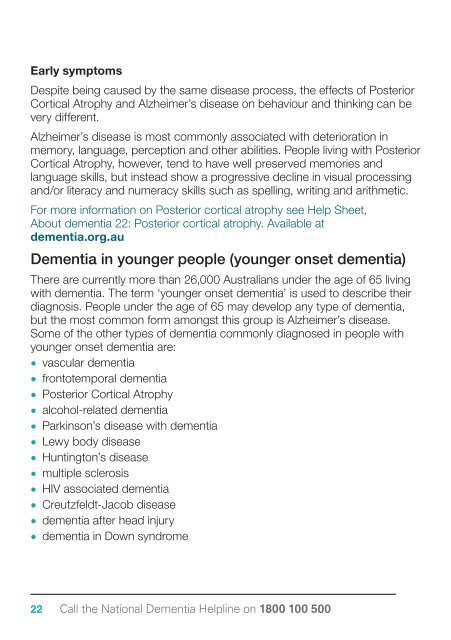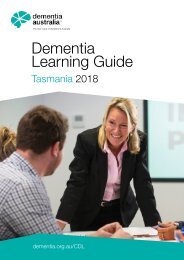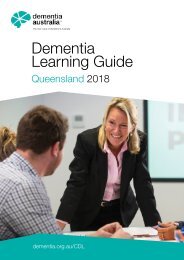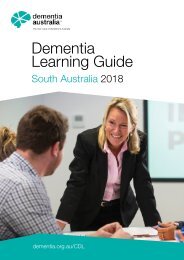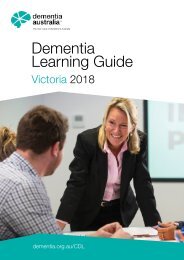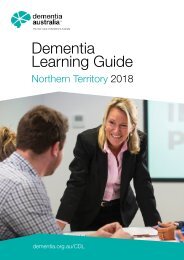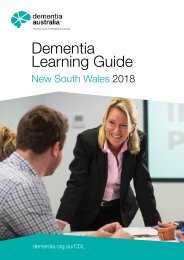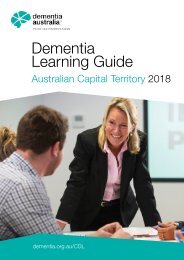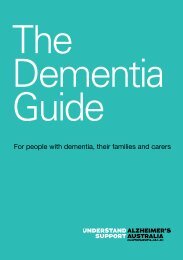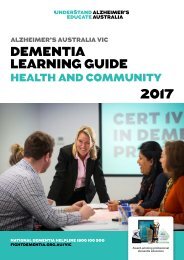Dementia Australia | The Dementia Guide
The Guide will also be used by the family and friends of someone with dementia, as it will contain information for anyone taking on a caring role. It will help people to understand more about dementia and the emotional impact of a diagnosis, the available drug treatments, and support and services that are available. It will include information about living well with dementia and about making plans for the future.
The Guide will also be used by the family and friends of someone with dementia, as it will contain information for anyone taking on a caring role. It will help people to understand more about dementia and the emotional impact of a diagnosis, the available drug treatments, and support and services that are available. It will include information about living well with dementia and about making plans for the future.
You also want an ePaper? Increase the reach of your titles
YUMPU automatically turns print PDFs into web optimized ePapers that Google loves.
Early symptoms<br />
Despite being caused by the same disease process, the effects of Posterior<br />
Cortical Atrophy and Alzheimer’s disease on behaviour and thinking can be<br />
very different.<br />
Alzheimer’s disease is most commonly associated with deterioration in<br />
memory, language, perception and other abilities. People living with Posterior<br />
Cortical Atrophy, however, tend to have well preserved memories and<br />
language skills, but instead show a progressive decline in visual processing<br />
and/or literacy and numeracy skills such as spelling, writing and arithmetic.<br />
For more information on Posterior cortical atrophy see Help Sheet,<br />
About dementia 22: Posterior cortical atrophy. Available at<br />
dementia.org.au<br />
<strong>Dementia</strong> in younger people (younger onset dementia)<br />
<strong>The</strong>re are currently more than 26,000 <strong>Australia</strong>ns under the age of 65 living<br />
with dementia. <strong>The</strong> term ‘younger onset dementia’ is used to describe their<br />
diagnosis. People under the age of 65 may develop any type of dementia,<br />
but the most common form amongst this group is Alzheimer’s disease.<br />
Some of the other types of dementia commonly diagnosed in people with<br />
younger onset dementia are:<br />
• vascular dementia<br />
• frontotemporal dementia<br />
• Posterior Cortical Atrophy<br />
• alcohol-related dementia<br />
• Parkinson’s disease with dementia<br />
• Lewy body disease<br />
• Huntington’s disease<br />
• multiple sclerosis<br />
• HIV associated dementia<br />
• Creutzfeldt-Jacob disease<br />
• dementia after head injury<br />
• dementia in Down syndrome<br />
22 Call the National <strong>Dementia</strong> Helpline on 1800 100 500


